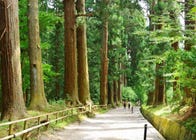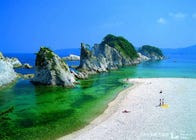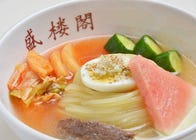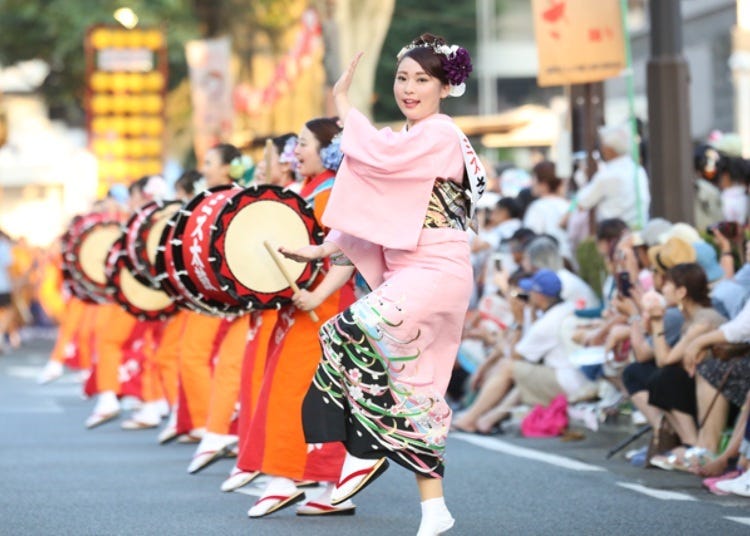
Iwate Prefecture sits in the northern region of Tohoku and is the second largest prefecture in Japan behind Hokkaido. Each city, town, and village has its own unique charm and character, making it well worth setting aside a few days to explore fully.
The inland areas, including Morioka and Hiraizumi, brim with historical townscapes and stunning wilderness from the Kitakami Mountains and beyond.
The Iwate coastline faces the Pacific Ocean and is dotted by ports and restaurants offering a wealth of gourmet seafood dishes. This article will show you some must-visit sightseeing, shopping, and foodie spots to inspire your Iwate trip!
What Kind of Place Is Iwate?
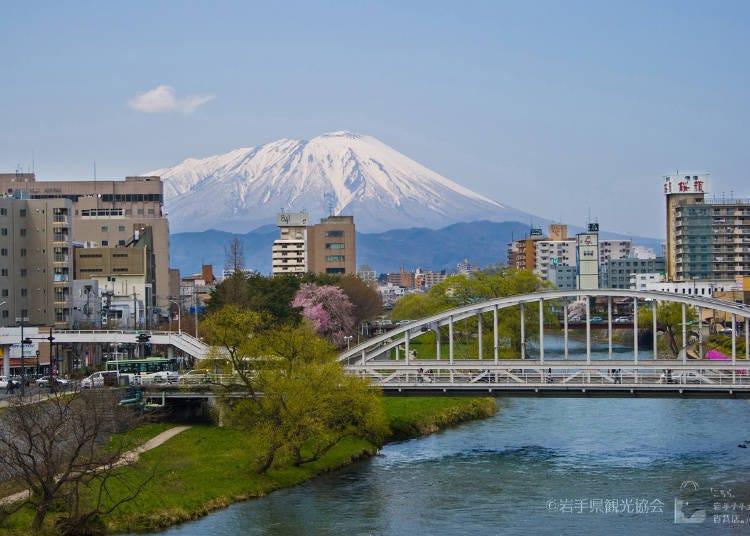
Iwate Prefecture is full of stunning scenery, such as Jodogahama Beach and Geibikei Gorge, along with a wealth of historical and cultural sights including Chuson-ji and Motsuji Temple. There are also plenty of hot spring resort towns to wash away fatigue, each boasting a diverse array of gorgeous accommodations. Iwate is also famous for its abundance of fresh seafood, vegetables, and other produce, yielding delicious local dishes born from the oceans, mountains, and rivers.
Getting to Iwate From Tokyo
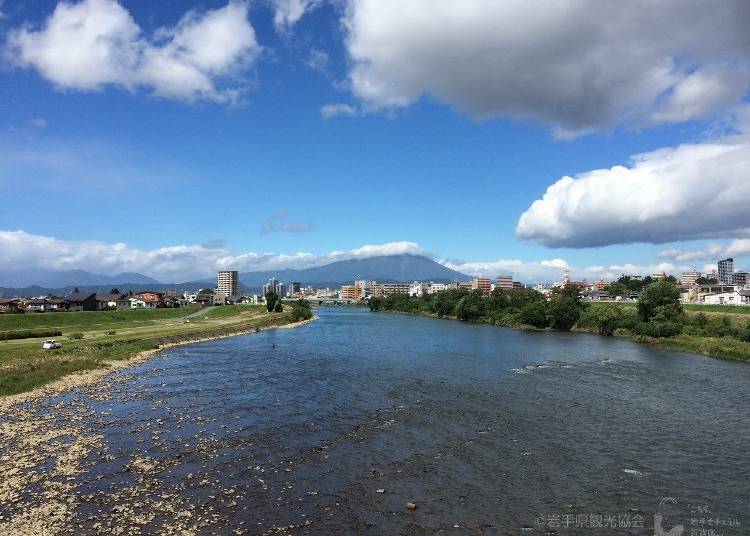
There are three main transport hubs for sightseers in Iwate: Morioka Station, Hanamaki Station, and Ichinoseki Station. You can reach them from Tokyo via the following:
Morioka Station
- Bullet Train (Shinkansen): An approx. 2 hr 15 min ride on the “Hayabusa” or “Hayate” JR Tohoku Shinkansen from Tokyo Station to Morioka Station.
- Highway Bus: An approx. 7 hr 25 min ride on the “Dream Morioka-go” bus operated by Kokusai Kogyo from the Yaesu South Exit at Tokyo Station to the East Exit of Morioka Station.
Hanamaki Station
- Bullet Train (Shinkansen): An approx. 3 hr 5 min ride on the “Yamabiko” bullet train on the JR Tohoku Shinkansen from Tokyo Station to Shin-Hanamaki Station.
Ichinoseki Station
- Bullet Train (Shinkansen): An approx. 2 hr 35 min ride on the “Yamabiko” bullet train on the JR Tohoku Shinkansen from Tokyo Station to Ichinoseki Station.
- Highway Bus: An approx. 5 hr 50 min ride on the Kesen Liner bus operated by Kokusai Kogyo from the West Exit at Ikebukuro Station to Ichinoseki Station.
Morioka Station is best for accessing Morioka City, the Sanriku area, and northern Iwate Prefecture, while Hanamaki Station connects to Hanamaki and Tono, and Ichinoseki Station to Ichinoseki and Hiraizumi. When getting around Iwate Prefecture itself, you can easily use the buses or trains within a city or town. If you wish to visit multiple areas, we suggest renting a car for the quickest and most practical travel.
1. Hiraizumi: Tour the World Heritage Sites of Iwate
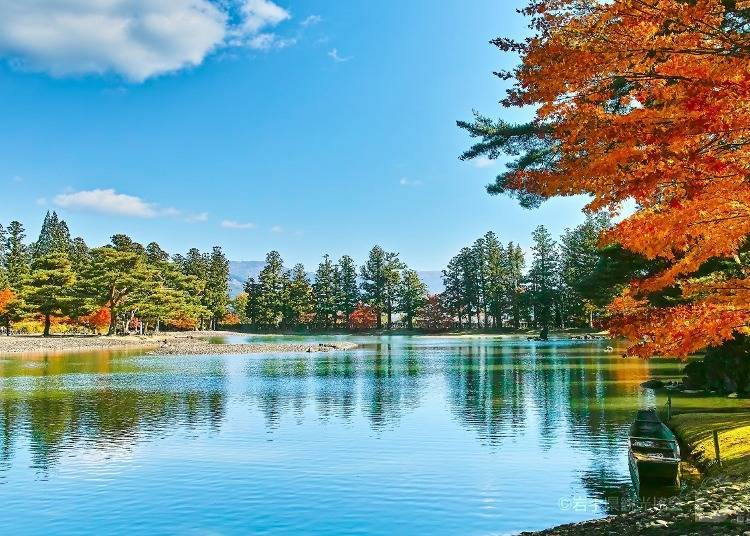
Hiraizumi developed as the center of government in the Tohoku region for around 100 years during the 11-12 centuries. In 2011, five sites dotting the town were designated as part of the “Hiraizumi World Heritage Sites.”
The highlights are Chuson-ji and Motsuji Temple. Chuson-ji is a temple constructed by Fujiwara no Kiyohira, founder of the Northern Fujiwara dynasty, and is famed for its collection of around 3,000 cultural assets. Motsuji Temple is most known for its splendid gardens centered around the “Oizumi ga Ike” pond. During the 4th Sunday of May, the “Gokusui no En” traditional poetry contest is held, where you can see poets dressed in authentic period outfits.
Multilingual Support
- Chuson-ji
Pamphlets: English, Chinese, Korean, French, Russian, Spanish, German, Italian, Portuguese, Thai
Audio Guides: English, Chinese, Korean, French, German, Spanish
- Motsuji Temple
Pamphlets: English, Chinese, Korean
Audio Guides: English, Chinese, Korean, French, German, Spanish
-
Chuson-ji Temple中尊寺
- Address Koromonoseki-202 Hiraizumi, Nishiiwai District, Iwate 029-4102
2. Jodogahama Beach: The Best Views in Iwate!
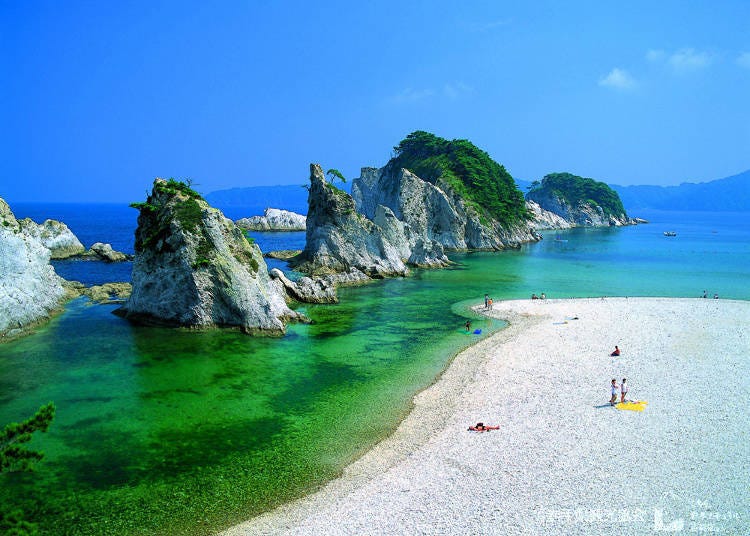
Jodogahama Beach is heralded as the jewel of the Sanriku Coast. Within the clear, blue waters rise sharp, white rocks, weaving together dynamic scenery.
The best viewing spots are from the Jodogahama Rest House on the coastline, which showcases the white rocks, and the Odaiba Observatory near the car park, which presents panoramic views of the entire bay.
Plus, from July 2022, the sightseeing cruise boat “Miyako Umineko Maru” started operation, allowing new views from the ocean!
-
Jodogahama Beach浄土ヶ浜
- Address 32, Hitachihamacho, Miyako, Iwate, 027-0001
TEL: 0193-62-2111 (Miyako Tourism)
3. Ryusendo Cave: Discover a Mysterious Underground Lake
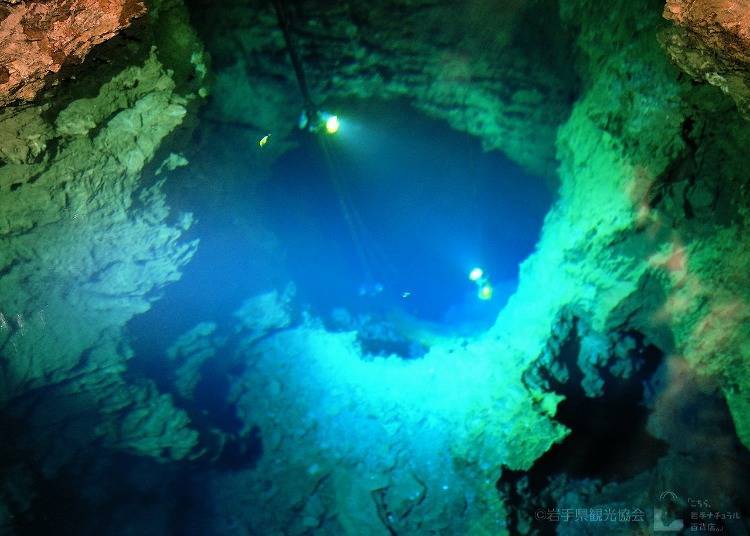
Ryusendo Cave, located in Iwaizumi, is one of Japan’s Three Great Limestone Caves, alongside Akiyoshido Cave in Yamaguchi and Ryuga Cave in Kochi. The cave has a known length of 4,088 meters, 700 meters of which are open to the public.
The main draws are the underground lakes filled with clear, azure water. The famous “Dragon Blue” spring can be viewed up close at the second lake, which is the largest in the cave.
-
Ryusendo Cave龍泉洞
- Address Kannari 1-1, Iwaizumi, Shimohei Distict, Iwaizumi-cho, Iwate, 027-0501
- Phone Number 0194-22-2566
Hours: 8:30 a.m. - 6:00 p.m. (Oct - April: 8:30 a.m. - 5:00 p.m.)
Admission:
- Adults: 1,100 yen
- Elementary/Middle School Students: 550 yen
Closed: Open daily
4. Hachimantai Mountaintop Trail Course: Trek Through Untouched Wilderness
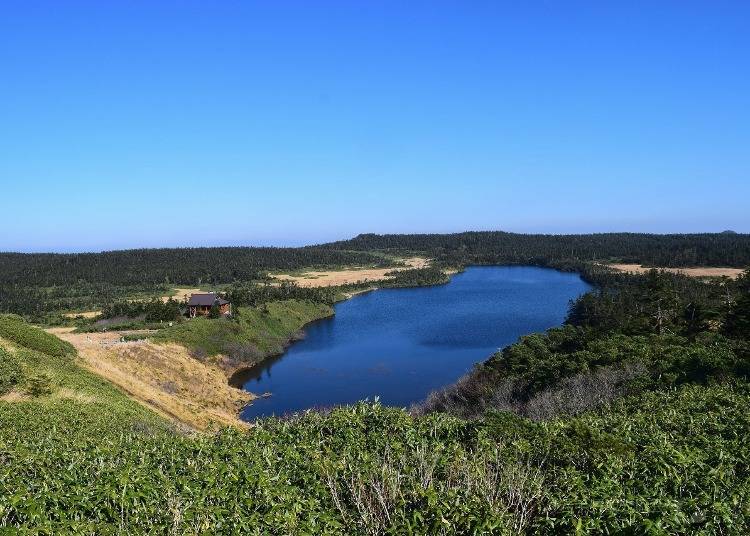
The Hachimantai Mountaintop Trail Course tours the summit of Mt. Hachimantai, which straddles the border of Iwate and Akita Prefectures. The shortest trekking course takes around 1 hr, making it doable for those short on time.
Trekkers will enjoy a diversity of breathtaking scenery, including the magnificent panoramas at Hachimannuma Observatory, the crystal clear reflections at Kagaminuma Lake, and the primeval forest lookouts at the Mikaeri Pass.
-
Hachimantai Mountaintop Trail Course八幡平山頂遊歩道
- Address Hachimantai, Hachimantai, Iwate
TEL: 0195-78-3500 (Hachimantai Tourism Association)
Hours: Between mid-April - early November, sightseeing is free
5. Bank of Iwate Red Brick Building: Enjoy the Splendid Architecture of Another Era
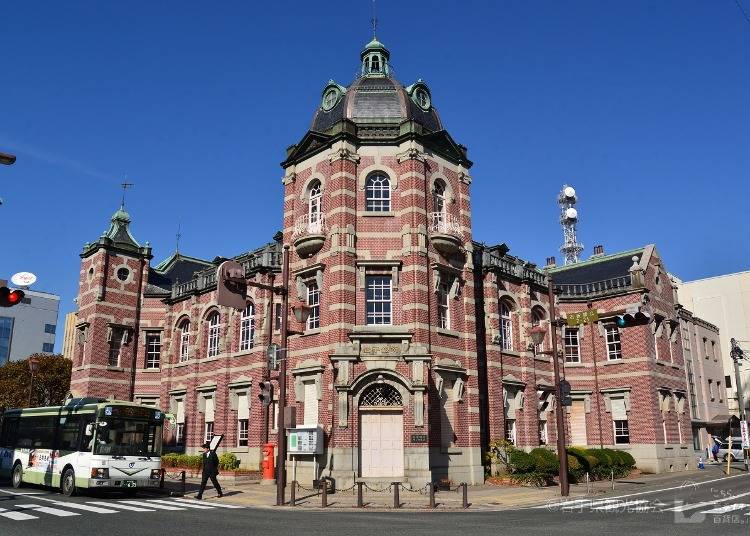
The Bank of Iwate Red Brick Building is an iconic symbol of Morioka, initially opened in 1911 as the main center for the Bank of Morioka. In 1994, this invaluable building was the first in-use bank to be designated as a National Important Cultural Property. After three and a half years of restoration work, it reopened to the public as the Bank of Iwate Red Brick Building.
The bank is split between the free and paid areas. The latter features the beautifully restored “reception room” and “executive suite” filled with important materials and relics of the time. The free area boasts a multipurpose hall where events are often staged, along with a library lounge exploring the history of the surrounding Nakanohashi suburbs.
-
Bank of Iwate Red Brick Building岩手銀行赤レンガ館
- Address 1-2-20, Nakanohashidori, Morioka, Iwate, 020-0871
- Phone Number 019-622-1236
Hours: 10:00 a.m. - 5:00 p.m. (Admission until 4:30 p.m.)
Admission (Paid Zone):
- General (16+): 300 yen
- Elementary/Middle School Students: 100 yen
- Preschool Children: Free
Closed: Tuesdays, Dec 29 - Jan 3
6. Miyazawa Kenji Museum: Discover the Fascinating Works of Kenji Miyazawa
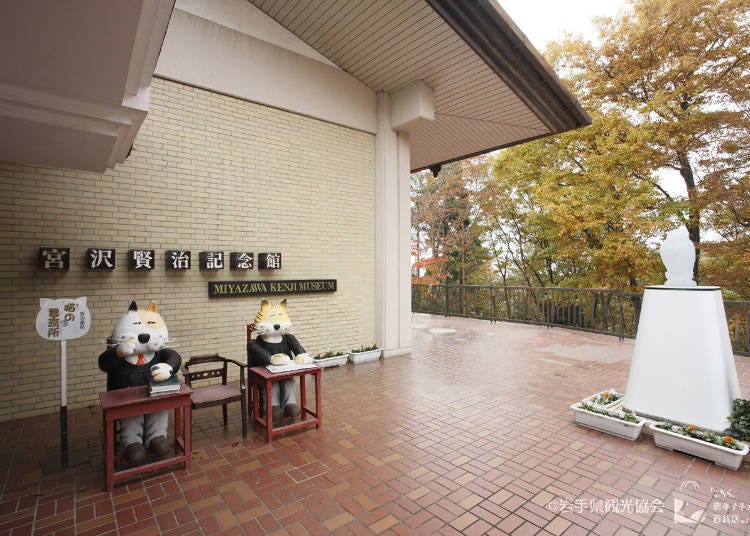
Kenji Miyazawa is a celebrated poet and children’s author known for works like “Ame ni mo Makezu” and “Night on the Galactic Railroad.” The Miyazawa Kenji Museum is dedicated to the variegated life of Kenji Miyazawa, including his background, beliefs, forays into science, and artistic achievements. Exhibits include his beloved cello, written manuscripts, and other personal items related to this legend of Japanese literature and poetry.
Multilingual Support
Pamphlets: English
Signage: English, Chinese, Korean
-
Miyazawa Kenji Museum宮沢賢治記念館
- Address 1-1-36, Yasawa, Hanamaki, Iwate, 025-0011
- Phone Number 0198-31-2319
Hours: 8:30 a.m. - 5:00 p.m.
Admission:
- Adults: 350 yen
- High School and College Students: 250 yen
- Elementary and Middle School Students: 150 yen
*Group discounts available
Closed: Dec 28 - Jan 1
7. Miyazawa Kenji Fairytale Village: Immerse Yourself in a Make-Believe World
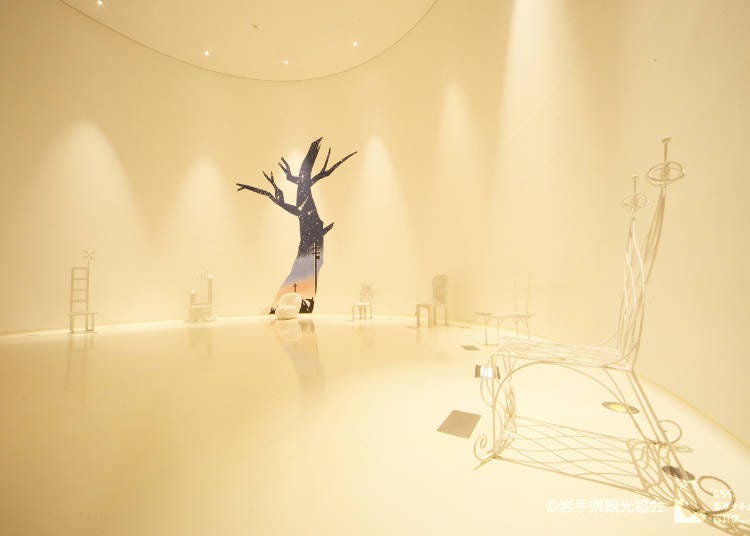
The Miyazawa Kenji Fairytale Village is where the fairy tale worlds of Kenji Miyazawa come to life. “Kenji no Gakko” is an area of the facility that is divided into five zones: “Fantastic Hall,” “Space,” “Sky,” “Earth,” and “Water.”
Here you can experience the imaginary world of Ihatov as envisioned by Kenji. In the log house exhibit, “Kenji no Kyoshitsu,” you can also see displays of the plants, animals, stars, birds, and stones that appear in his stories.
Multilingual Support
Pamphlets: English, Chinese, Korean
Signage: English, Chinese, Korean
-
Miyazawa Kenji Fairytale Village宮沢賢治童話村
- Address 26-19, Takamatsu, Hanamaki, Iwate, 025-0014
- Phone Number 0198-31-2211
Hours: 8:30 a.m. - 4:30 p.m.
Admission:
- Adults: 350 yen
- High School and College Students: 250 yen
- Elementary and Middle School Students: 150 yen
Closed: Dec 28 - Jan 1
8. Morioka Castle Site Park: A Renowned Cherry Blossom Hotspot!
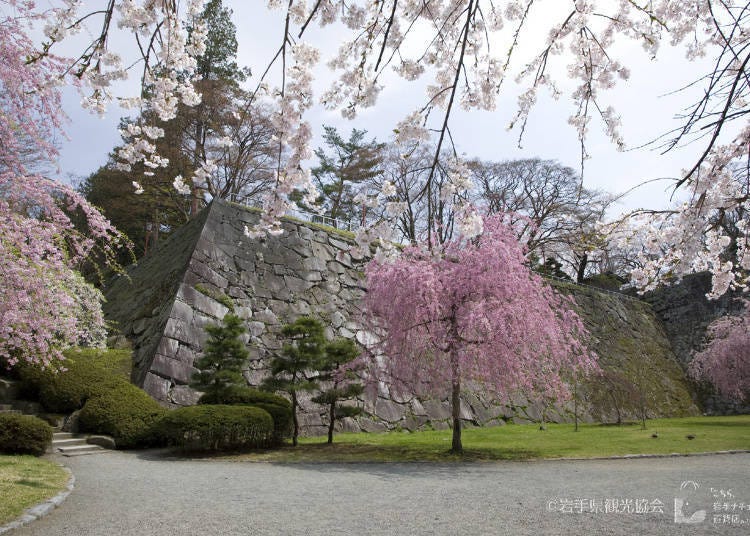
Morioka Castle Site Park was established on the ruins of Morioka Castle, which was once home to the Nanbu clan of the Morioka Domain (1185 - 1870). It is also famed for being regularly visited by Iwate-born poet Takuboku Ishikawa and the aforementioned children’s author Kenji Miyazawa. It is also one of Japan’s leading cherry blossom hotspots, with around 250 cherry trees blooming during the springtime between mid-April and early May.
-
Morioka Castle Site Park盛岡城跡公園
- Address 1-37, Uchimaru, Morioka, Iwate, 020-0023
TEL: 019-604-3305 (Morioka Tourism & Convention Association)
9. Ishiwarizakura: A One-of-a-Kind Cherry Tree
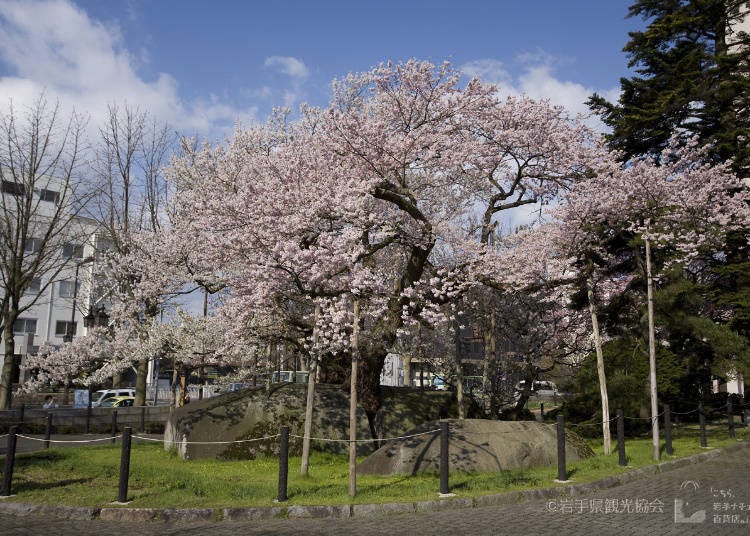
Ishiwarizakura is an “Edo higanzakura” cherry blossom tree found on the grounds of the Morioka District Court. It grows from a crack in a giant granite boulder with a 21-meter circumference, making it a true rarity. Due to its precious nature, it was officially designated a National Natural Monument in 1923. The tree itself is 11 meters tall, and is said to be between 350 - 400 years old.
The tree generally blooms between mid to late April, and can be visited during the Morioka District Court opening hours of 8:30 a.m. to 5:45 p.m.
-
Ishiwarizakura石割桜
- Address 9-1, Uchimaru, Morioka, Iwate, 020-0023
TEL: 019-604-3305 (Morioka Tourism & Convention Association)
10. Miracle Pine: The Symbol of Recovery
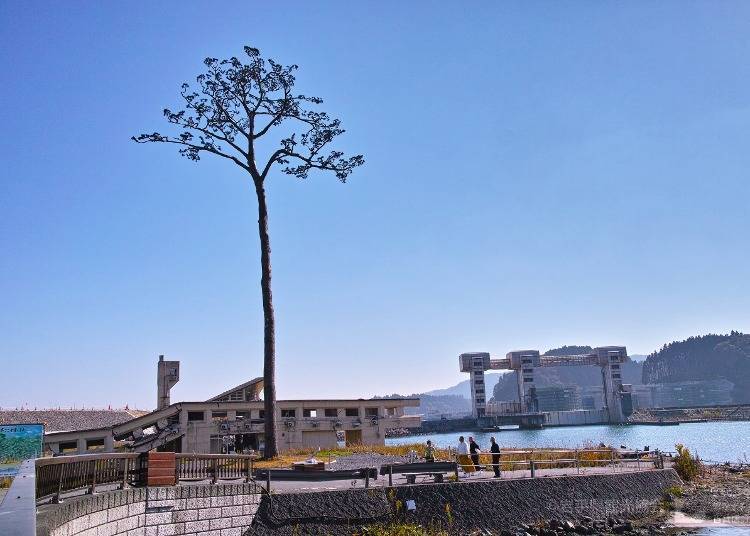
The 2011 Tohoku earthquake and tsunami brought severe destruction to the city of Rikuzentakata, including washing away a cluster of around 70,000 pine trees over a two-kilometer stretch. Despite the violent onslaught, one black pine, now dubbed the “Miracle Pine,” remains standing.
Although the Miracle Pine sadly died due to seawater contamination, it has been painstakingly preserved as a monument of restoration to pass on to future generations. Watching over the city as rebuilding projects gradually progress, it now attracts both locals and sightseers seeking to make a wish.
-
Miracle Pine奇跡の一本松
- Address Sunamori 176-6, Kesencho, Rikuzentakata, Iwate, 029-2204
TEL: 0192-54-5011 (Rikuzentakata Tourism and Products Association)
11. Geibikei Funakudari: Cruise Down a Stunning Valley River
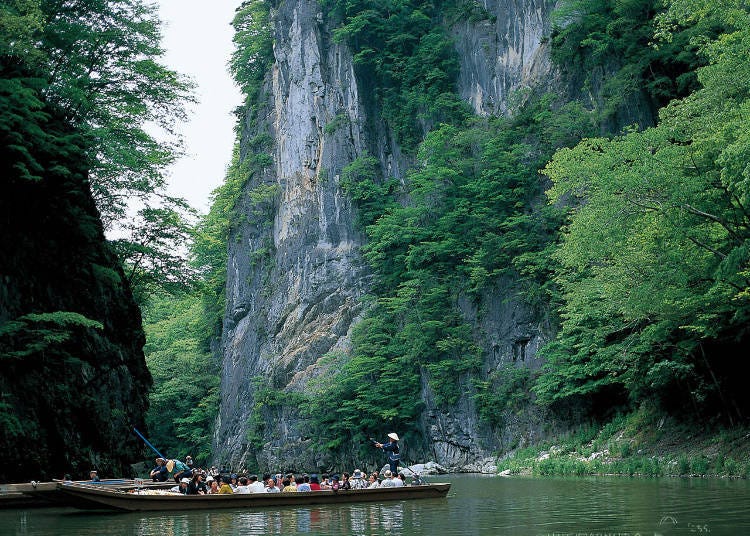
Geibikei is a 2-kilometer-long gorge with precipitous cliffs 100 meters high. Included amongst the 100 Landscapes of Japan, the gorge is a popular spot to enjoy downriver cruises navigated by a boatman with a single stick. A round trip takes around 1.5 hrs.
At the 124-meter-high "Daigeibigan Rock," which stands at the end of the walking trail from the boat landing, visitors can try their luck throwing clay balls into a hole in the rock face, a quirky local tradition.
Multilingual Support
Pamphlets: English, Chinese, Korean, Thai
-
Geibikei Funakudari猊鼻渓舟下り
- Address Machi 467, Higashiyamacho Nagasaka, Ichinoseki, Iwate, 029-0302
- Phone Number 019-47-2341
Hours: 8:30 a.m. - 4:00 p.m. (Subject to change depending on period)
Admission:
- Adults: 1,800 yen
- Elementary School Students: 900 yen
- Children 3+: 200 yen
Closed: Open daily (Closed in bad weather)
12. Genbikei Gorge: Chow Down on Flying Dango While Admiring the Scenery
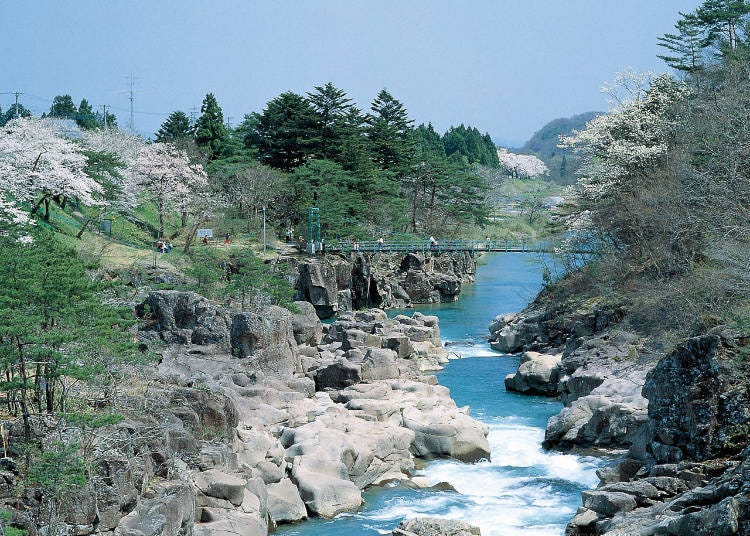
Genbikei Gorge is a popular spot for lovers of untouched natural splendor, flaunting two kilometers of waterfalls and rocks of all shapes and sizes. Convenient walking trails allow easy access to absorb the colors of each season.
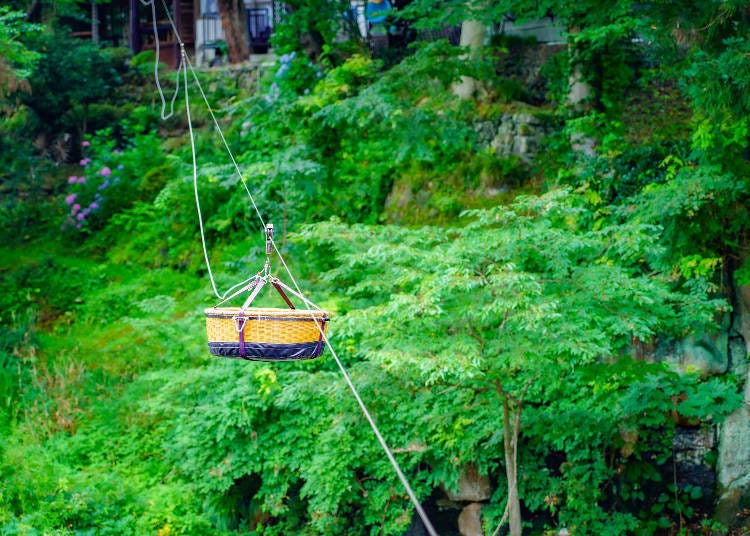
Another reason to visit Genbikei Gorge is for its famous “flying dango.” Simply place money in a basket at the rest center, tap the wooden tag, and the basket will “fly” to the teahouse on the opposite side of the gorge via a rope and pulley system. After waiting a while, the basket will return bearing delicious dango and tea. The perfect pick-me-up between walks!
-
Genbikei厳美渓
- Address Takinoue, Gembicho, Ichinoseki, Iwate, 021-0101
TEL: 0191-23-2350 (Ichinoseki Tourism Association)
13. Hanamaki Onsen: Bath in Famous Hot Springs
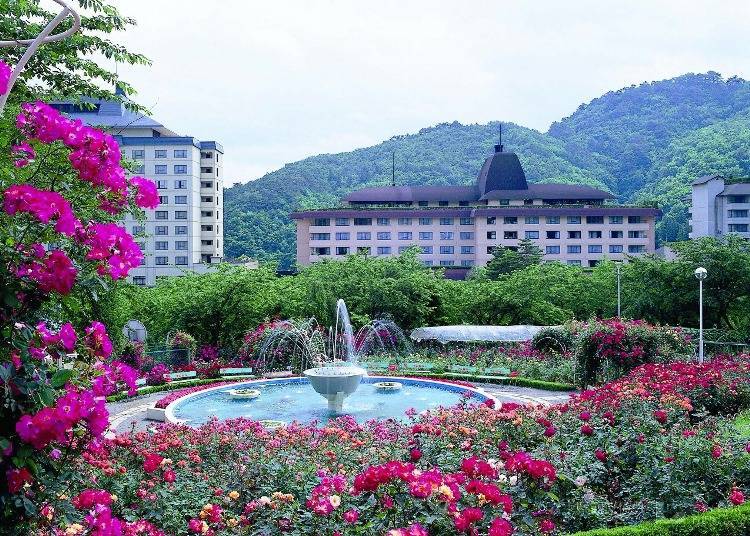
Hanamaki Onsen brims with a nourishing, dignified atmosphere, colored by rows of cherry blossoms, groves of red pine, and a rose garden featuring a flowerbed clock set up by Kenji Miyazawa. Of course, the main draw are the hot springs, of which there are plenty! You can choose from open-air rock baths, hinoki cypress baths, and even rose baths reserved for women. Wander the town, and find one that suits you!
-

-
Address
1-125-2 Yumoto, Hanamaki City, Iwate Prefecture, 025-0304
View Map -
Nearest Station
Shin-hanamaki Station (Tohoku Shinkansen / Hokkaido Shinkansen / Akita Shinkansen)
20 minutes by bus
Vacancy search, reservation
-
from 58,520JPY 1room, 2adults
Check with our partner site as the latest rates, rate details, and guest room requirements may vary.
-
Address
1-125-2 Yumoto, Hanamaki City, Iwate Prefecture, 025-0304
-
Hanamaki Onsen花巻温泉郷
- Address Yumoto, Hanamaki, Iwate, 025-0304
Hours: Depends on facility, check official websites
Admission: Depends on facility, check official websites
Closed: Open daily
14. Morioka Sansa Odori Festival: Iwate’s Lively Traditional Dance!
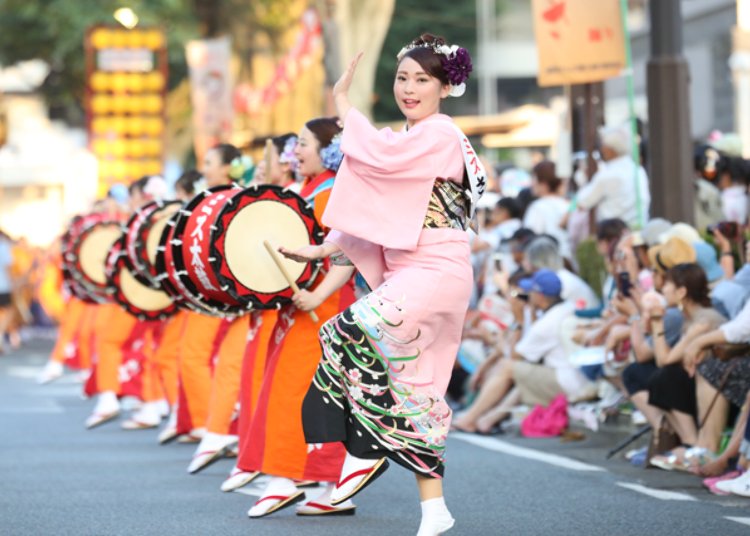
The symbol of summer in Iwate is the Morioka Sansa Odori, where around 20,000 participants dance in time with flutes and taiko drums. It is held in the central Chuodori of Morioka City every year between August 1-4.
The Sansa Odori parade is held from 6:00 p.m., and the following “Wa-odori” invites all spectators, local and visitor alike, to join in the fun. On the final day, a massive taiko drum parade is held, recreating the largest in the world.
-
Morioka Sansa Odori Festival盛岡さんさ踊り
- Address Chuodori, Morioka, Iwate
TEL: 019-624-5880 (Morioka Sansa Odori Festival Executive Committee)
15. Taste the Three Great Noodles of Morioka
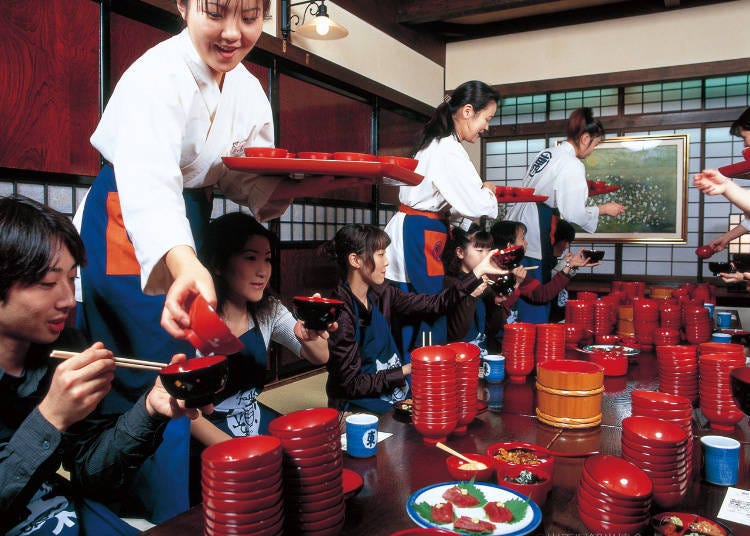
The Three Great Noodles of Morioka are “wanko soba,” “Morioka reimen,” and “Morioka jajamen.” Each is long-loved as a staple of local cuisine.
Wanko soba consists of a small serving of soba in a single bowl, which is then topped up by the waiters as you eat. Morioka reimen boasts firm noodles with a satisfying bite, while Morioka jajamen flaunts warm, flat noodles eaten with a miso paste mixed with ground meat. Each has its own distinctive character, so it’s worthwhile saving room for all three!
16. Relish Sushi and Kaisendon From the Sanriku Area
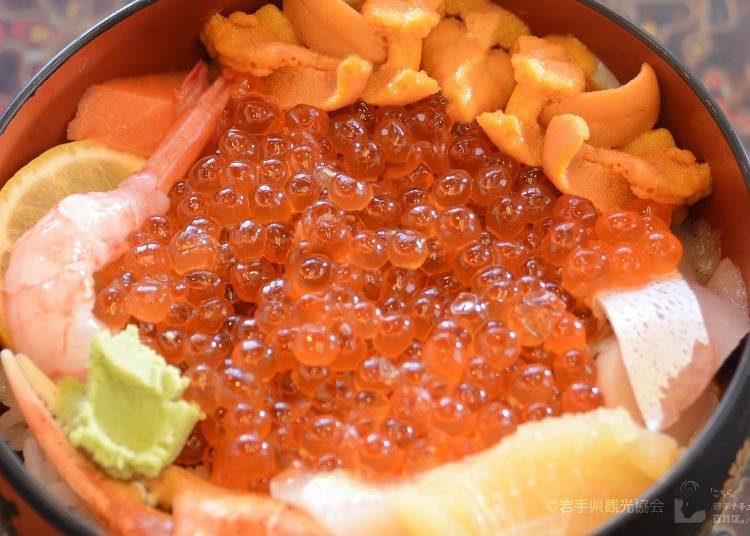
The Sanriku Coast, where the Kuroshio Current and Oyashio Current clash, is one of the world’s most abundant fishing areas. Throughout the year, cities and towns in the region, like Miyako and Kuji, enjoy fresh seafood hauled in through numerous ports. Walking the streets, it won’t take long before you come across renowned sushi and kaisendon joints serving up generous portions of the best seasonal catches.
17. Gorge on Mouthwatering Maesawa Beef
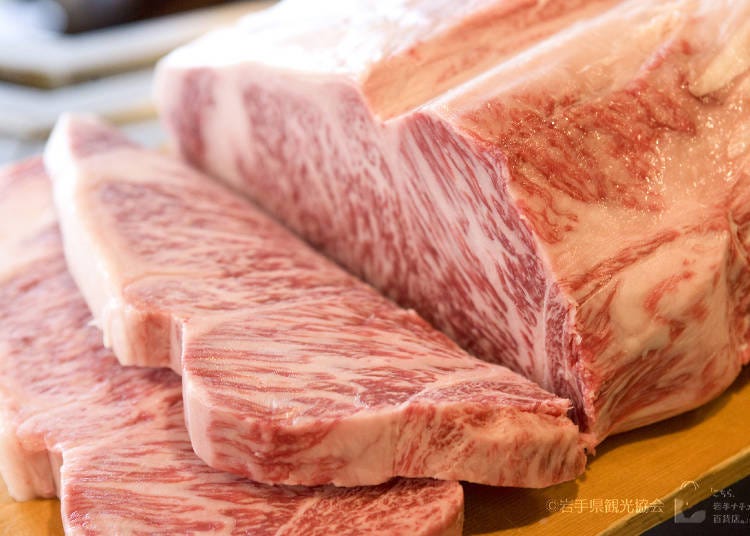
Maesawa Beef is a wagyu brand famous for its delicate marbling and melt-in-your-mouth texture. Coveted throughout Japan, Maesawa Beef results from stringent quality control, and is often described as a “masterpiece of taste.” Along with Maesawa City itself, it can be enjoyed all throughout Iwate Prefecture at steak and yakiniku restaurants.
18. Iwachu Tekkikan: Traditional Nambu Tekki Ironware

Nambu Tekki is a form of cast ironware produced around Morioka and Oshu, and is one of the most famous traditional crafts of Iwate. Made from pig iron, these kettles, hotpots, and other daily essentials flaunt a dignified, solemn air, making them equally popular as ornaments.
Iwachu Tekkikan, located in Morioka City, stocks a comprehensive lineup of Nambu Tekki products adapted with the sensibilities and technology of the modern world, such as colorful traditional “kyusu” teapots and IH-compatible cookwares. Visitors can also view the fascinating production process up close for free!
-
Iwachu Tekkikan岩鋳鉄器館
- Address 2-23-9, Minamisemboku, Morioka, Iwate, 020-0863
- Phone Number 019-635-2501
Hours: 8:30 a.m. - 5:30 p.m.
Admission: Free
Closed: Tuesdays, Dec 31 - Jan 1
19. Kamome No Tamago: A Classic Iwate Sweet
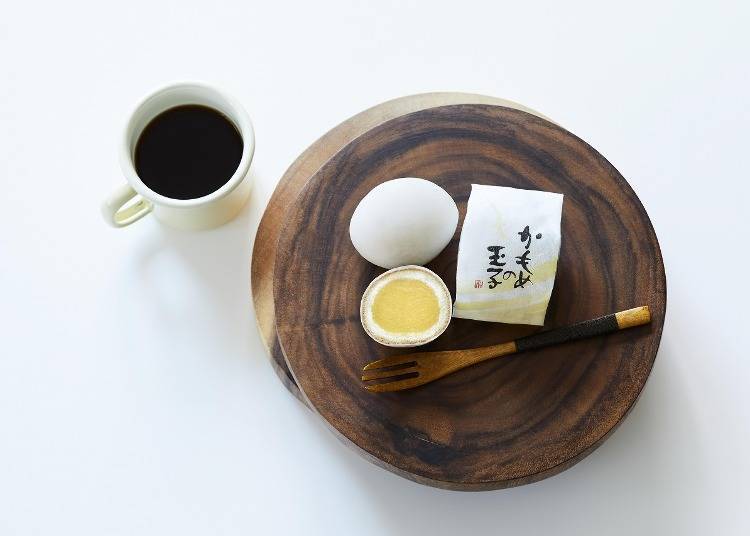
Kamome No Tamago is a unique manju bun consisting of smooth yellow sweet bean paste wrapped in a thin layer of castella and coated in white chocolate. It has a delicate, gentle flavor and comes in an adorable size, making it a hit with tourists and a treat for locals.
20. FESAN Odense Building: Last-Minute Souvenirs at Morioka Station
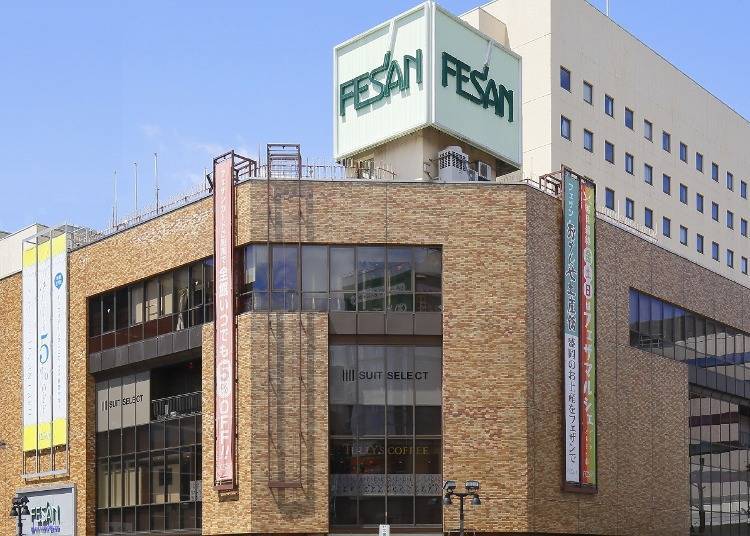
FESAN Odense, located within FESAN directly connected with JR Morioka Station, is the ideal spot to snap up some last-minute local goodies before leaving. They stock a wide selection of products from all over Iwate, including confectionery, sake, traditional crafts, and more.
-
Morioka Station FESAN Odense Building盛岡駅ビルフェザンおでんせ館
- Address 1-44, Moriokaekimaedori, Morioka, Iwate, 020-0034
- Phone Number 019-654-1188
Hours: 9:00 a.m. - 8:30 p.m.
Closed: Open daily
We hope you’ve enjoyed our round-up of sightseeing in Iwate! From nature to food, shopping and more, we’re sure you’ll have more than enough to pack your Iwate itinerary with plenty of fun, thrills, and delicious tastes!
*This article was rewritten in July, 2022, from an article originally published in November, 2019. Always confirm the latest information on respective official websites.
Written by: Takumi Miyamoto (SHOE PRESs)
- Area
- Category
*Prices and options mentioned are subject to change.
*Unless stated otherwise, all prices include tax.
Popular Tours & Activitiess
Recommended places for you
-

Ginzan Onsen
Hot Springs (Onsen) & Bath Houses (Sento)
Surrounding Areas Of Yamagata
-

Sado Gold Mine
Winter
Niigata And Sado
-

Koiwai Farm
Other Nature
Morioka, Hiraizumi And Hachimantai
-

Matsushima Bay
Landscapes
Sendai And Matsushima
-
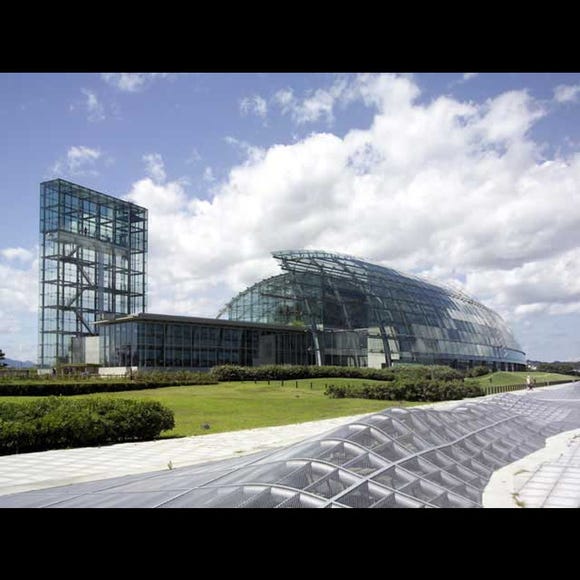
Aquamarine Fukushima
Zoos, Aquariums & Botanical Gardens
Fukushima, Koriyama And Iwaki
-

Akiu Onsen
Hot Springs (Onsen) & Bath Houses (Sento)
Sendai And Matsushima
-

Niigata Sake no Jin 2026: Guide to Japan's Most Legendary Sake Weekend
-

8 Luxury Tohoku Ryokans: Private Onsen, Gourmet Wagyu, and Winter Views
by: Sae Haneda
-

Aomori's Quiet Side in Autumn: 5 Scenic Spots in Hachinohe According to a Local
by: Marco Blasco
-
Ad

Why Fukushima is the Next Big Food Destination in Japan The Foodie Paradise Only 90 Minutes from Tokyo
-

Shopping in Niigata: 9 Must-Buy Souvenirs & Local Sake to Take Home
by: ShiroKu inc.
-

Shopping in Akita: 11 Must-Buy Souvenirs & Where to Shop Near the Station and Airport
by: ShiroKu inc.
-

Yamagata Prefecture Guide: Destinations, Activities, Travel Advice, Shopping & More
by: Steve Csorgo
-
Ad

Now in 9 Languages! 3 Reasons Why JR East's Website is Super Useful & Convenient
-

Japanese Foods List: 16 Crazy Tasty Japanese Tohoku Region Dishes You've Never Heard of
by: Guest Contributor
-

Tokyo to Sendai: Riding the Shinkansen to Japan's Stunning Spots
-

The Ultimate Rail Journey? What Surprised An American About Japan's Shinkansen Bullet Trains
by: Fujico
-

Racing Across Japan in the Joetsu Shinkansen: From Tokyo to Niigata's Sake Country In Style













